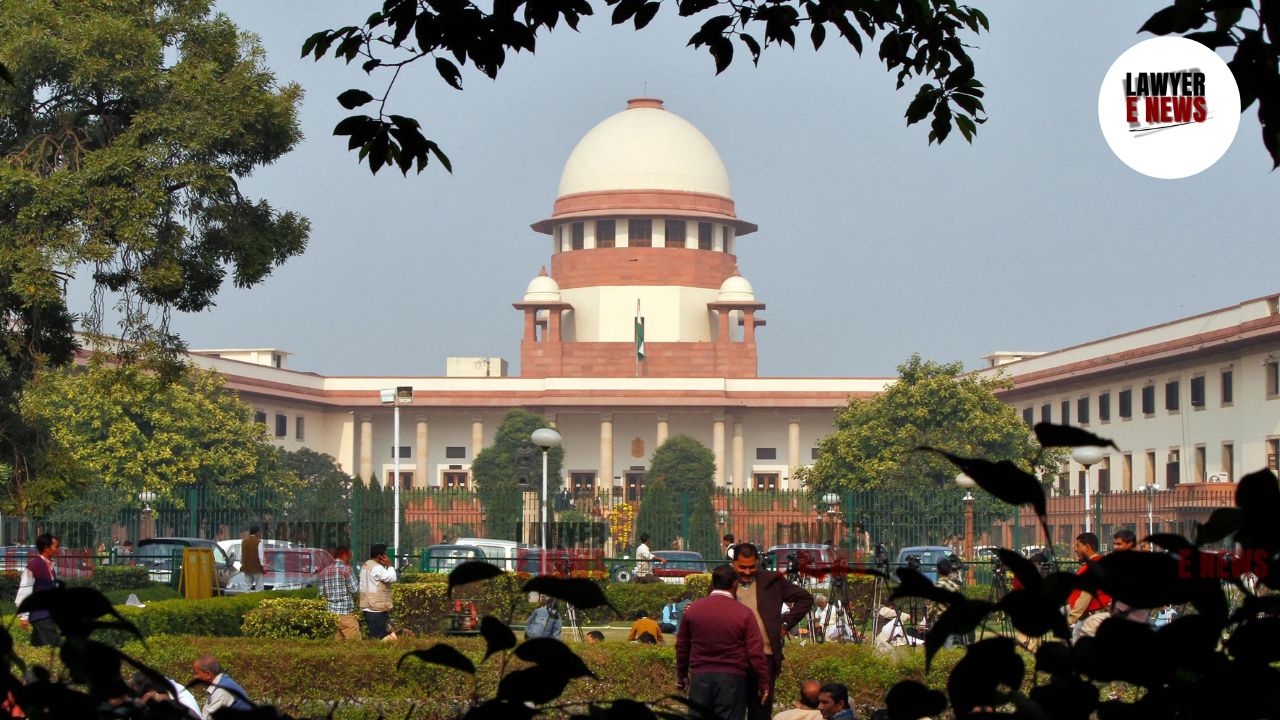-
by Admin
15 February 2026 2:36 AM



Supreme Court of India reaffirming the doctrine of lis pendens and ordering specific performance of a sale agreement dated August 17, 1990, for a piece of agricultural land. The judgment overturned the decisions of the Trial Court and First Appellate Court, both of which had previously dismissed the claim for specific performance while allowing only partial recovery for the plaintiff.
The case concerned an agreement between the plaintiff, Daljit Singh, and the first defendant, Janraj Singh, for the sale of land measuring 79 Kanals 9 Marlas. The plaintiff had paid an earnest money deposit of Rs. 40,000, with the remaining amount of Rs. 7,54,000 due upon registration of the sale deed, which was to take place on November 30, 1992. However, when the defendant failed to execute the sale deed, the plaintiff filed a suit for specific performance on December 24, 1992.
During the litigation, the first defendant sold the disputed land to the second defendant, Shingara Singh, on January 8, 1993, leading to a dispute over whether this sale was valid in light of the pending suit.
The central legal issue was whether the sale made to the second defendant during the pendency of the suit violated the doctrine of lis pendens, which prohibits transactions involving disputed property during ongoing litigation. The Trial Court and the First Appellate Court ruled that the second defendant was a bona fide purchaser without notice of the prior agreement, denying specific performance but granting partial recovery of the plaintiff's earnest money with interest.
However, the High Court reversed this decision, holding that the sale was void under the doctrine of lis pendens and ordering specific performance of the original agreement.
The Supreme Court upheld the High Court’s decision, emphasizing that the sale to the second defendant was invalid under Section 52 of the Transfer of Property Act, 1882, which codifies the doctrine of lis pendens. The Court noted:
"A purchaser of suit property during the pendency of litigation has no right to resist or obstruct execution of a decree passed by a competent court".
The Court further reasoned that the second defendant, being a resident of the same village, was likely aware of the pending litigation. The sale price in the subsequent transaction was also lower than the amount stipulated in the original agreement, raising questions about the legitimacy of the sale.
The Court referred to various precedents, including Usha Sinha v. Dina Ram, where it was held that the doctrine of lis pendens applies regardless of whether the purchaser had actual knowledge of the ongoing suit. The Court reaffirmed that lis pendens serves as a constructive notice to all parties that any transaction involving the property would be subject to the outcome of the pending litigation.
The ruling also highlighted that once the sale agreement between the plaintiff and the first defendant was proven, the subsequent sale to the second defendant was void, as it occurred during the litigation. The Court observed:
"Lis pendens itself is treated as constructive notice to a purchaser that he is bound by a decree to be entered in the pending suit".
In its final ruling, the Supreme Court dismissed the appeal by Shingara Singh and upheld the High Court's order for specific performance of the original sale agreement. The Court found no merit in the argument that the second defendant was a bona fide purchaser and held that the sale was invalid under lis pendens. The appeal was dismissed with no order as to costs.
Date of Decision: October 14, 2024
Shingara Singh v. Daljit Singh & Anr.
